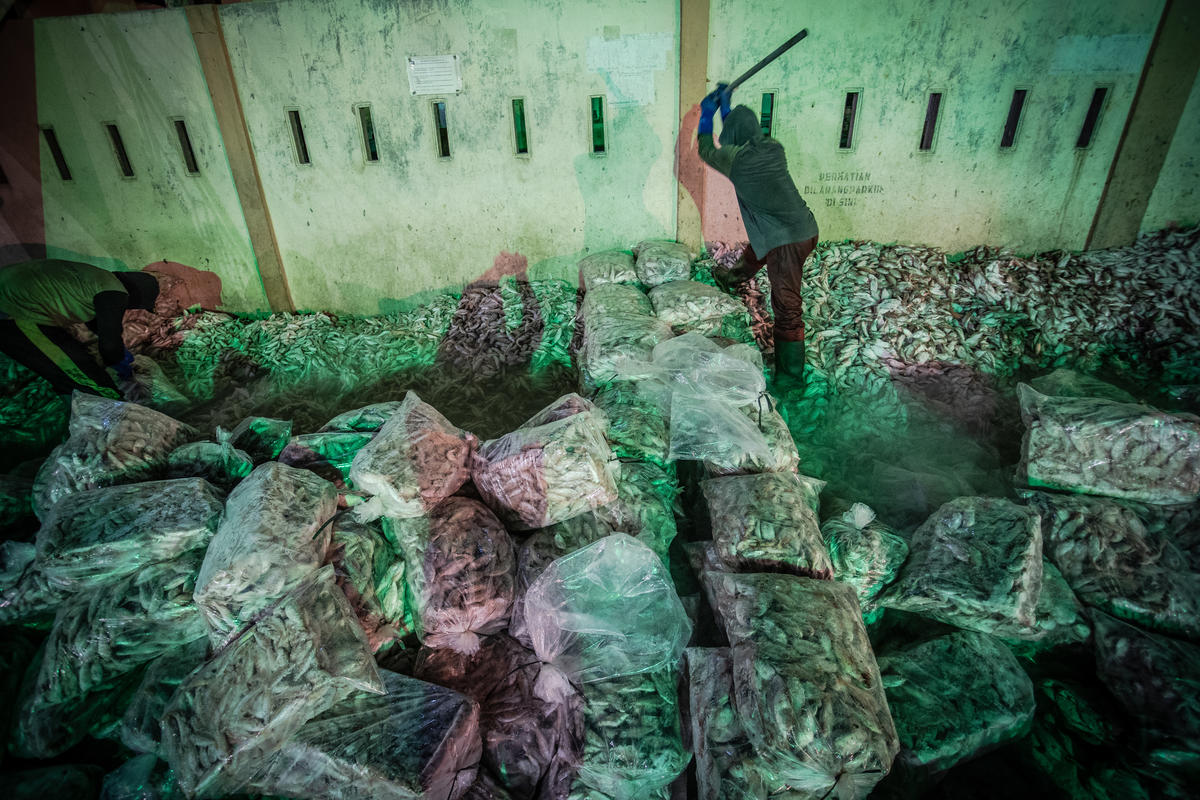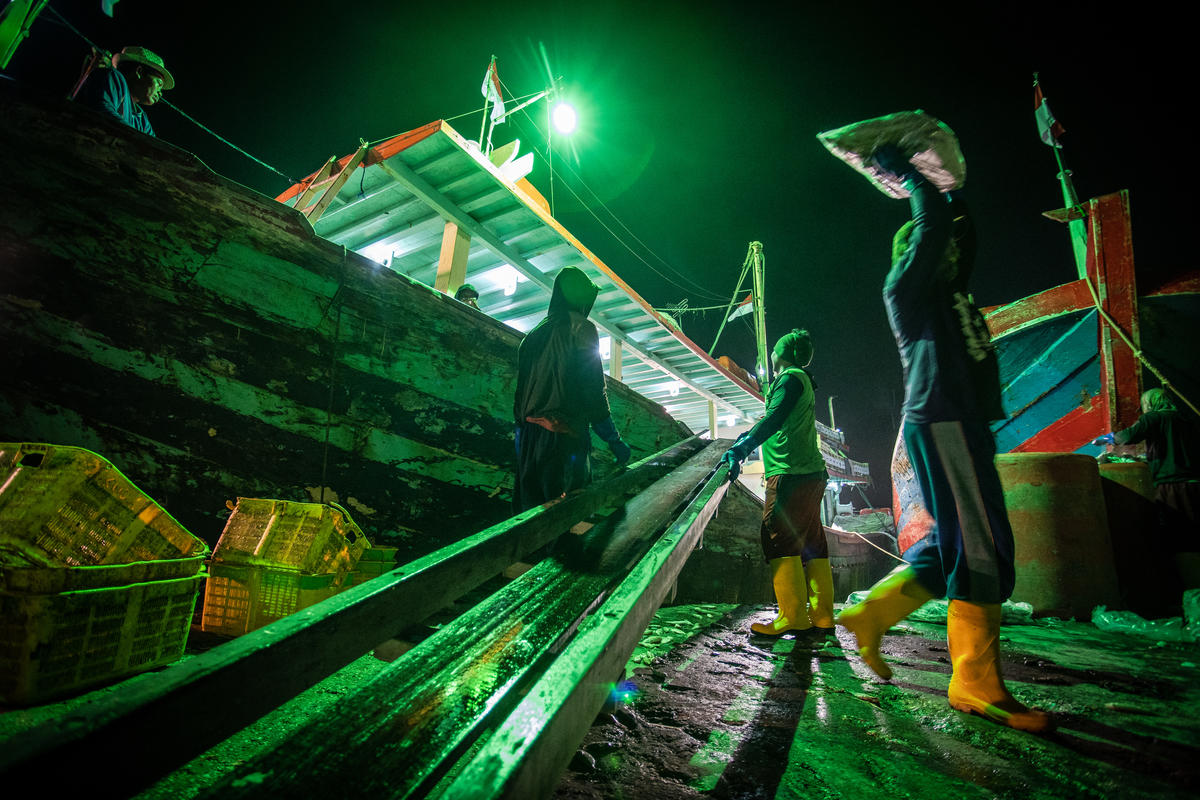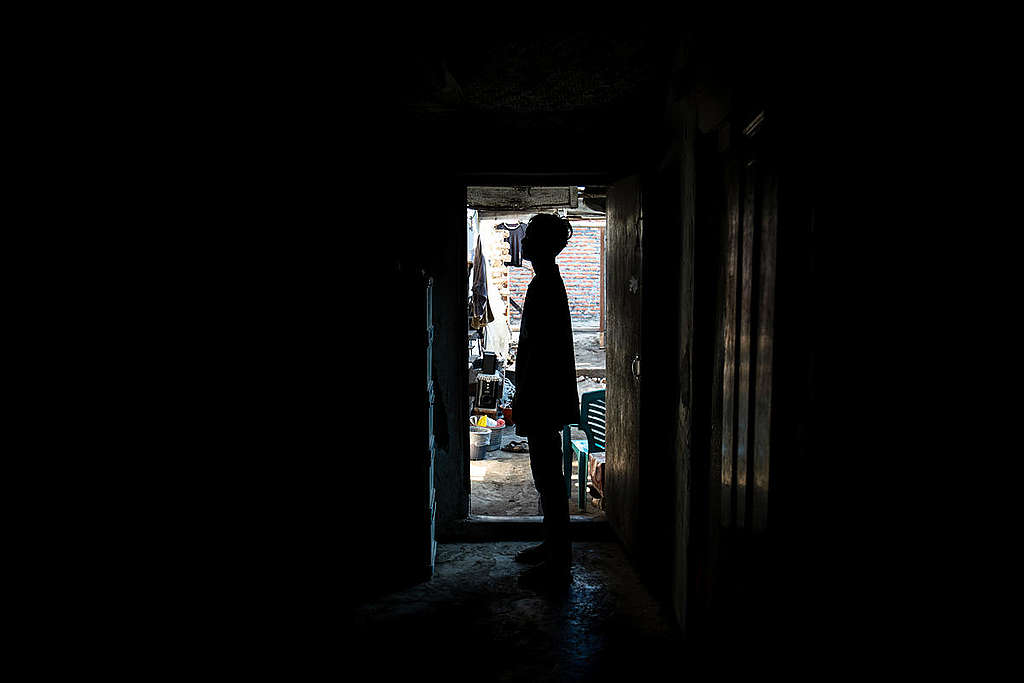
It is a sad truth that even now, on the cusp of 2020, slavery is very much alive in the modern context. This is particularly true in the fishing industry and of great concern, are migrant workers from Indonesia and the Philippines. For several years now, international media has shone a spotlight on the inhumane working conditions of migrant fishers from Southeast Asia.
In a new report, “Seabound: The Journey to Modern Slavery on the High Seas”, Greenpeace Southeast Asia spoke to many migrant fishers about their experiences in order to present a snapshot of the living and working conditions onboard distant water fishing (DWF) vessels, according to the fishers themselves.
Here are 5 reasons modern slavery at sea is possible, and why it is so important that we shine a light on these issues today, on International Human Rights Day.
1. Vulnerable job-seekers from Indonesia & the Philippines are seeking better paid employment
“Rahmatullah was desperate to improve economic conditions and provide a better life for his parents with a higher paying job.” – article in Liputan BMI, Indonesian publication
Many of the migrant fishers interviewed in the article and in Greenpeace Southeast Asia’s report, stated that local job opportunities are scarce and economic pressure drove them to seek employment overseas. It is also very common for young men in Southeast Asia to be responsible for providing for their parents and family so, despite hearing disturbing tales of what happens to migrant fishers at sea, many still take the chance to earn more money.
2. Shady employment agencies lure workers with false promises
“Work conditions such as food, working hours, social insurance, among others were not like as promised by the manning agency in Indonesia.” – direct testimonial, Mr C, former crew
Common to many testimonials heard by Greenpeace Southeast Asia, is the allegation that the agencies who place the workers often promise high salaries but take large processing and placement fees, resulting in severe losses to individuals and their families. One worker even reported being asked to sign a contract written in another language, which he could not understand, leaving him completely in the dark about the agreement he had just entered into.
3. Fish populations are declining rapidly
Dwindling coastal fish populations are forcing vessels to seek fish further and further out to sea, where monitoring and control is virtually impossible. This distant water fishing results in higher operational costs, and increases the possibility of exploitation of migrant fishers to cut expenses.
Aside from the various alleged labour violations, overfishing and illegal, unreported and unregulated (IUU) fishing place a huge burden on marine ecosystems.

4. Transshipment
Transshipment is when fish catches, fuel and other resources are ferried to and from fishing vessels to enable them to spend longer on the high seas. Isolation at sea for months, even years, may make escape from slave-like conditions difficult and even impossible. Transshipment could even be used to transport crew into situations of forced labor. It is all too easy for these vessels to operate away from the reach of the law. Such a scenario, where fishing vessel captains rule with impunity, makes modern slavery at sea possible.
5. Lack of governmental oversight or support
Ultimately, and arguably, the purpose of a government is to protect its people. It is clear from reading “Seabound: The Journey to Modern Slavery on the High Seas” that the governments in question are failing to effectively manage the labor migration process, leaving these migrant fishers’ rights vulnerable to exploitation.
Greenpeace Southeast Asia strongly emphasises the need for ASEAN member States, particularly Indonesia and Philippine governments, to take concrete policy actions to address the labour and environmental issues cited in the report, as well as measures to deal with reportedly high levels of discrimination on DWF vessels. With the world watching, it’s time to take the first steps to ensure that modern slavery at sea becomes a thing of the past.

This ‘out of sight, out of mind’ model of the global fishing industry can no longer continue, and the never-ending complaints of injustice and abuse must be addressed immediately by all stakeholders. One migrant fisher suffering is one too many. It is absolutely vital that national laws securing migrant fishers’ rights are fully enforced, or, where they are absent, must be developed as soon as possible.
This Human Rights Day we are focused on finding ways both industry and government can transition to a more sustainable and ethical future, protecting what matters most: the ocean and those who work there.
Share this blog and help us shine a light on fishing industry injustices. Read the full report here.
Written by Elizabeth Monaghan, digital campaigner with Greenpeace Southeast Asia.

You have the power. Make a green wish. Save our planet.
